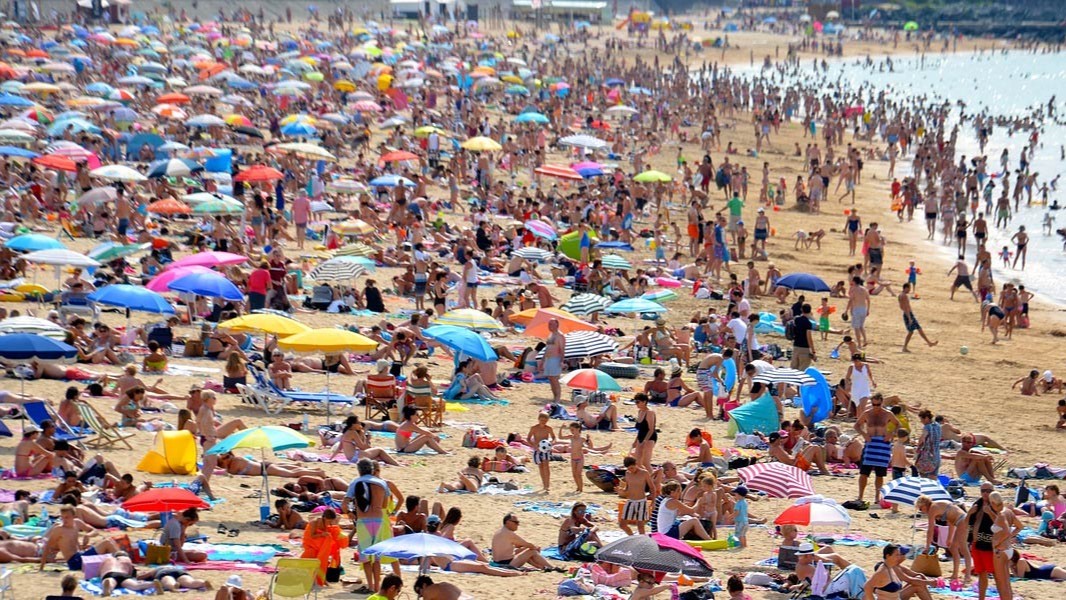Act Now: Save Nature from Over-tourism’s Destruction with Ever Wonder Adventure
Over-tourism is devastating our planet’s jewels—polluting waters, eroding cultures, and depleting resources. From Boracay’s closure to the Great Barrier Reef’s bleaching, urgent action is needed. Join us in safeguarding these treasures and ensuring a sustainable future for all.

Over-tourism has reached a crisis point, severely affecting the planet’s most treasured destinations. The rapid and uncontrolled influx of tourists is not just a minor inconvenience but a major threat to economic stability, environmental health, and cultural integrity. This blog post explores the critical issues arising from over-tourism, using specific examples to highlight the urgency for action.
1. Economic Strain and Resource Depletion
Example: Boracay, Philippines
In 2018, the Filipino government shut down Boracay Island for six months due to severe environmental degradation. The island’s sewage overflow and poor waste management practices had turned its once-pristine waters into a polluted mess. This drastic measure aimed to address the resource depletion caused by overcrowding and to restore the island’s health. The long-term economic impact of this closure on local businesses highlights the importance of sustainable tourism practices.
Resolution Needed: Implement ecotourism fees to fund resource management and infrastructure upgrades. Promote responsible water and energy use and waste reduction initiatives in tourism facilities. More details on these solutions can be found .
2. Environmental Destruction and Biodiversity Loss
Example: Maya Bay, Thailand
Featured in the film “The Beach,” Maya Bay in Thailand faced severe coral reef damage due to excessive boat traffic. The bay was closed in 2018 to allow its ecosystems to recover. This example underscores how unmanaged tourism activities can lead to habitat loss and threaten biodiversity.
Resolution Needed: Establish protected areas, enforce responsible tourism guidelines for wildlife encounters, and support ecological restoration projects. Promote low-carbon tourism modes like walking and cycling to mitigate climate change impacts. Read more on sustainable practices .
3. Cultural Erosion and Community Exploitation
Example: Venice, Italy
Venice has been struggling with the impact of mass tourism, particularly from cruise ships. The sheer number of visitors has led to a loss of local cultural identity and overcrowded conditions. The city's residents face challenges in preserving their heritage amidst the influx of tourists.
Resolution Needed: Develop community-based tourism programs that involve locals in decision-making and benefit sharing. Educate tourists about local customs and implement visitor behavior guidelines at sensitive sites.
4. Pollution and Degradation of Iconic Sites
Example: Great Barrier Reef, Australia
The Great Barrier Reef is suffering from coral bleaching and pollution, partly due to tourism activities. The reef’s degradation not only threatens its biodiversity but also its economic value as a major tourist attraction.
Resolution Needed: Encourage responsible tourism practices that minimize pollution. Support sustainable tourism initiatives and invest in conservation efforts. More information on this can be found .
What You Can Do: Join the Movement for Sustainable Tourism
To combat overtourism, individuals and organizations must take proactive steps:
- Support Ever Wonder Adventure: This platform showcases pristine destinations while highlighting the need for responsible tourism. By supporting Ever Wonder Adventure, you contribute to promoting sustainable practices and environmental guardianship.
- Become a Responsible Tourist: Choose destinations and tour operators that prioritize sustainability. Respect local cultures and environments, and be mindful of your ecological footprint.
- Advocate for Change: Support policies and regulations that promote sustainable tourism. Encourage governments and businesses to adopt responsible practices and invest in conservation.
Conclusion
Over-tourism poses a significant threat to the planet’s natural and cultural treasures. By understanding the dire consequences and taking actionable steps, we can work together to preserve these wonders for future generations. Join in advocating for sustainable tourism and protecting the beauty of the world.
For further information, explore resources such as the and various sustainability indexes. More details on addressing over-tourism can be found .

